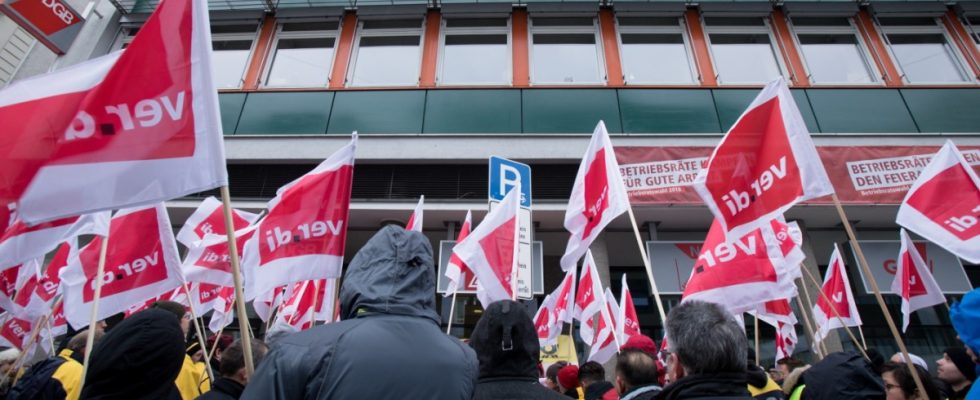Six days of strike by the German Locomotive Drivers’ Union (GDL) have been overcome, new negotiations with the railways are pending. The central demand: three hours less work per week with full wage compensation. And it’s not just the GDL that is putting the issue of working time at the center of collective bargaining. The German Federation of Trade Unions (DGB) headlined the annual press conference of the Munich trade unions on Tuesday with an old question: Who owns the time?
The DGB includes some of the largest unions in the country, above all IG Metall and Verdi. And also: the railway and transport union EVG. Not there: the GDL. “We do not comment on the collective bargaining of other unions,” says DGB Munich chairwoman Simone Burger initially. Then she adds: “But we see that there is clearly a desire for less working time.”
DGB chairwoman Simone Burger. (archive photo)
(Photo: Stephan Rumpf)
“Can you demand that when there is a shortage of workers everywhere?” asks Claudia Weber, deputy managing director of Verdi Munich, and answers her own question: “Yes!” Everyone at this DGB conference agreed that jobs should be made more flexible. Simone Burger believes that we are currently in a vicious circle. There is a shortage of workers in many places, which increases the burden on each individual. Because of concerns about additional failures, employers are becoming less willing to give in to demands for relief. However, this is a fallacy and leads to even more failures.
At this point, Burger refers to a report from the Federal Institute for Occupational Safety and Health from 2022, according to which 53 percent of the employees surveyed would like their working hours to be reduced. “I personally rave about the 35-hour week,” says Burger. Today, however, it is increasingly about the four-day week. In a 2023 study, the DGB’s own Hans Böckler Foundation came to the conclusion that 81 percent of full-time employees would like such a model. For most people it’s about having more time for their families and “for leisure”. Almost 31 percent of those surveyed said they wanted to work less for health reasons. Burger calls this an “alarm sign of a high workload.”
“Of course Corona has also left its mark, sickness rates are currently very high,” says Sibylle Wankel, first representative of IG Metall Munich. The sickness rate also allows clear conclusions to be drawn about employee satisfaction. Anyone who is dissatisfied with the strain will, if in doubt, report sick more quickly. “This is exacerbating the shortage of skilled workers immensely,” confirms Burger.
There were largely no concrete announcements at this year’s DGB-Munich press conference. There are new rounds of collective bargaining in the construction and chemical industries, but strikes have not yet been planned. The unions are more concerned with the general, Burger speaks of an urgently needed “humanization of the world of work.” The political demands for faster integration of refugees into the German labor market are more concrete. Claudia Weber sees this as an important opportunity: “It is incomprehensible that trained engineers work as cleaners for us!”
Working less is already possible in many companies today, but you have to be able to afford it. Burger emphasizes this repeatedly. “Time instead of money” models are not an option for many, especially in a city like Munich with high rental and living costs, says Wankel. “Only with full wage compensation do employees have a real choice.” This clearly sets the direction for future negotiations between the DGB unions.

